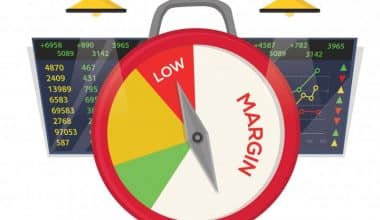Cash out refinance is a mortgage refinance option that replaces your existing mortgage with a new home loan for more than you owe on your house. What are the major cash-out refinance requirements? How does it work?
We’ll be answering the questions above and more, in this blog post.
What is cash out refinance loan?
Cash out refinancing is when you take out a new home loan for money than what you owe on your current loan and receive the difference for cash.
Let’s take a look at an example:
For example, if your home worth is 700,000 and you owe 600,000, you have 100,000 in equity.
With cash out refinancing, you could receive a portion of this equity in cash.
Cash out refinancing is useful when you have the opportunity to use the equity in your home to pay off other debts and reduce your total interest payments each month.
It can also be useful when you’re unable to get money to fund a large purchase or investment.
Also, it can be useful when the cost of other funding is more expensive than the rate you can get.
How does cash out refinance work?
When you finance a mortgage, you’re simply placing a substitute for an existing loan with a new one for the same amount, but, usually at a lower interest rate for a shorter loan term, or both.
However, cash-out refinancing is different because you’re withdrawing a portion of your home equity in a huge sum.
The interest rate is usually higher because you’re increasing the loan amount.
Lenders usually reduce the amount you can withdraw not more than 80 percent of your home’s value to ensure you maintain an equity cushion.
Cash out refinance to buy a second home
Cash out refinance can help you get another home.
You can only complete a cash-out refinance if the current value of your house is much greater than the remaining balance on your mortgage.
Let’s use an illustration to explain better:
You will be a good candidate for cash out refinancing if your home is worth 700,000 NGN and the remaining mortgage balance is 100,000 NGN.
Lenders will only allow you withdraw up to 80 percent of the homes current value, minus the remaining balance.
From the illustration above, you could receive a loan up to 140,000 when you complete the cash-out refinance.
You can then proceed to use the money as a down payment for your next property.
In addition, lenders usually require a credit score of 620 or higher and a debt-to-income ratio of 50 percent or less.
If you plan to use the proceeds from the cash-out-refinance to buy an investment property, you’ll need to put down 15 percent to 25 percent.
However, if you’re buying a primary residence, then a smaller down payment is acceptable.
See also: CORPORATE FINANCE: The Complete Guide (+ free courses)
Cash out refinance requirements
To use cash out refinance, you’ll need to meet up with certain requirements for the loan, based on your credit score, finances, and property.
The requirements vary by lender and loan type, but you can generally expect to need:
• More than 20% equity in your home
• A new appraisal to verify your home’s value
• A credit score of at least 620
• DTI ratio (including the new loan) of 43% or less
• Verification of your income and employment.
Cash out refinance pros and cons
Let’s consider some of the pros and cons in using cash out refinance:
Pros of a cash-out refinance
1.Lower interest rates
Cash out refinance might give you a lower interest rate if you previously bought your home when mortgage rates were higher.
2. Debt consolidation
The money gotten from a cash-out refinance can be used to pay of high-interest credit cards, which could save you money.
3. Higher credit score
When you pay off your credit cards in full with a cash-out refinance, you are building your credit score by reducing your credit utilization ratio.
Cons of cash out refinance
1.Enabling bad habits
If you’re using cash out refinance to pay off your credit cards, it can backfire if you succumb to temptation and run up your credit card balances again.
2. Foreclosure risk
Your home is used as collateral, and if you can’t make payments when needed, you risk losing your home.
3. Closing costs
You’ll surely pay closing costs for a cash-out refinance, as you would with any type of refinance.
See also: Best mortgage lenders: 2022 picks updated (+ detailed guide)
What is the best reason to remortgage with cash-out?
Among the most obvious uses for a cash-out refinance is to make house repairs or renovations. However, since you can use the funds for whatever purpose, you could also consider using a cash-out refinance to pay for other significant expenses, such as paying off debt or funding your education.
What are appropriate cash-out refinance motives?
These are legitimate purposes for cash-out refinancing: financing the payment of closing costs, points, and prepaid items; paying off the unpaid principal balance of the current first mortgage. The borrower may add property taxes to the new loan amount.
Cash out refinance rates today
See below some of the rates for cash out refinancing
Better.com: Rate- 2.375%
AmeriSave Mortgage: Rate – 2.500%
Sebonic Financial: Rate – 2.615%
Texana Bank Mortgage: Rate – 2.525%
Standard Chartered Bank: Rate: 15% – 20%
Abbey Mortgage Bank: Rate: Fixed rate
Cash out refinance rates calculator
Cash out refinance rates calculator helps you decide if the mortgage loan you’re considering is worth considering.
It gives you insights on how refinancing could help you save money, or reduce your mortgage payments.
Use the best cash-out refinance rates calculators now:
4. Lending Tree
Cash out refinance investment property
Did you know that you can also refinance your investment property?
An investment property refinance can make your loan more manageable and give you the money you need to improve your tenants space.
When you refinance, you will be able to secure a lower interest rate or change the terms of your loan.
Many investment property owners refinance these properties to make improvements to their properties, and increase both rental and market values.
Cash out refinance vs. home equity loan
A home equity loan is a type o second mortgage that you can take out in addition to your primary mortgage.
Getting a home equity loan is quicker because the lender doesn’t require an in-person appraisal, and some lenders cover the closing costs on the loan.
Home equity loans often have fixed rates and shorter terms than primary mortgages, but you’ll be making monthly payments on both your home equity loan and original mortgage.
Both cash out refinancing and home equity loans can help you turn the equity you have built in your home into money you can use today.
Some major differences between the two is:
1. Cash out refinance replaces current mortgage, while a home equity loan does not.
2. A cash out refinance has fixed or variable interest rates, whereas a home equity loan has only fixed interest rates.
3. In cash out refinancing, the repayment term is usually 15 to 30 years, while a home equity loan is usually 5 to 30 years.
What does cash-out refinance mean in plain English?
The initial mortgage is paid off and a new mortgage is issued during a cash-out refinance. The home equity is transformed into a cash payout since the new mortgage loan is more than the previous loan amount.
What are the negative aspects of a cash-out refinance?
You owe extra money: With a cash-out refinance, the total amount of debt will grow. Regardless of how close you were to paying off your mortgage, the additional funds you got to pay the contractor are now a greater financial burden. This decreases your potential sales proceeds.
Must you repay the cash received via a cash-out refinance?
The money you receive from a cash-out refinance is not, however, free money. It’s a loan with interest that must be repaid. Even if you refinance with a reduced interest rate, keep in mind that the refinance will lengthen your term and increase the total interest paid.
Conclusion
In all, to get approved for a cash-out refinance or home equity loan, your creditworthiness is an important factor and must be worked on.
Your credit score is one of the major cash-out refinance requirements and it determines how much you can borrow and the interest rate offered.






